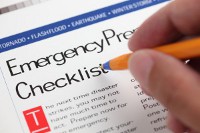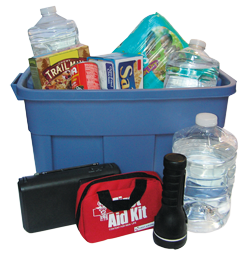An active retirement is not just keeping busy, but engaging in
quality activities that make your life worthwhile. If we attempt to fill
our newly found free time with quick distractions rather than quality
activities, we may eventually become bored. Here are some of the key
ingredients of quality retirement activities to help guide your
planning:
- Find something you are passionate about
- Find something that challenges you
- Find something that helps others
- Find something that is long term
You can find all of this and more in New Bern
North Carolina! Rich in history and surrounded by two beautiful river
New Bern has so much to offer. You can volunteer on one of many historic
sites. Stay active and learn about history of this sweet little town
and North Carolina!
For opportunities contact Tryon Palace http://www.tryonpalace.org/
or New Bern Preservation society. http://www.newbernpf.org/
If you think New Bern North Carolina might be a place for you
please contact us for you free relocation package Info@PrimeRealtyNC.com

Sonja Babic
Your North Carolina Broker
Friday, May 31, 2013
An Active Retirement is Not Just Keeping Busy
Active Retirement in New Bern NC
"There are 40 million Americans 65 and older today; by 2050 that
number is expected to double to 80 million," No wonder we have more and
more communities addressing active retirement lifestyle.
With nearly 2,000 retirees choosing New Bern, NC each year as their retirement destination, senior lifestyles in this historical riverfront town are active, rich in culture and well protected through medical services. Populated with many people that bought second homes during the housing boom that now serve as their primary retirement home, retirees work tirelessly to preserve New Bern's beauty and history.
Made even more attractive by New Bern's rich cultural history, mild climate, relatively low cost of living, beautiful surroundings and friendly people, there's no wonder why New Bern's retirement community continues to grow year after year. Active retired citizens enjoy fishing, golfing, sailing, hiking and boating with easy commutes from anywhere in the river city. Gardeners appreciate the year-round growing season, while the colonial setting of the city and the wide range of social, cultural and recreational activities make retirement in New Bern very attractive.
www.PRIMERealtyNC.com
252-637-7463
Atlantic hurricane 2013 season begins Saturday

They may not strike, but you should still be ready.
Before the Atlantic hurricane season officially begins Saturday, the
National Hurricane Center is hosting National Hurricane Preparedness
Week this week.
Saturday, June 1 marks Day 1 of the six-month hurricane period ending
in November, which is a reminder for area counties to double-check and
inform residents about disaster plans.
The NHC is predicting between 13 and 20 tropical storms in 2013. Up
to 11 of those are predicted to become hurricanes and between three and
six could turn into major storms.
“We typically take a look at what’s coming off Africa,” said
meteorologist Lara Pagano about tracking the tropical storm cycle. “You
have to have the warm sea surface temperatures and not too much wind
sheer out there so it can start to develop.”
Pagano, who works with the National Weather Service in Newport, said
with these “ingredients,” the weather service can forecast the intensity
of a storm as it gets closer.
Although it will be an active hurricane season, Pagano said there may or may not be landfall.
Randy Skinner, Greene County Emergency Services manager, said, “The
biggest thing I can stress to the citizens of the county is to make sure
you have supplies that last you at least three days.”
With a busy hurricane season predicted, one hasn’t made landfall
since Hurricane Irene in 2011. More than 2 million people were under
mandatory evacuation and 26 river-flooding records were broken,
according to Huffingtonpost.com.
Hurricane Floyd of 1999, also called the “500-Year Storm,” devastated
the Kinston area more than the others. When that catastrophic storm
bellowed into North Carolina, most of Kinston’s highways were inundated;
the Neuse River rose to 28 feet and it cost Lenoir County $310,000,000
in damages.
Floyd was tracked in its early stages.
“People need to pay attention to the forecast (and) the hazards that
are involved with them and heed the advice of the emergency managers and
the national weather services,” Pagano said. “I think that’s the best
that most people can do at this point.”

Sonja Babic
Your North Carolina Broker
Hurricane preparedness checklist
PRIME Realty NC wants you and your family to stay safe this Hurricane
season. Key to safety during any tropical storm is preparedness so
please take few moments read through this and make sure you have all of
the supplies you and your family might need. Lets hope we don't need any
of them this year but please be prepared!
FROM National Hurricane Center
Two keys to weather safety are to prepare for the risks and to act on those preparations when alerted by emergency officials. These are essential pieces to the Weather-Ready Nation.
Gather Information
Know if you live in an evacuation area. Assess your risks and know your home's vulnerability to storm surge, flooding and wind. Understand National Weather Service forecast products and especially the meaning of NWS watches and warnings.Contact your local National Weather Service office and local government/emergency management office. Find out what type of emergencies could occur and how you should respond.
Contacts
Keep a list of contact information for reference.
- Local Emergency Management Office
- County Law Enforcement
- County Public Safety Fire/Rescue
- State, County and City/Town Government
- Local Hospitals
- Local Utilities
- Local American Red Cross
- Local TV Stations
- Local Radio Stations
- Your Property Insurance Agent
Risk Analysis
Online hazard and vulnerability assessment tools are available to gather information about your risks.- Check your hazards risks with FEMA's Map Portal.
- Rate your flood risk with the FloodSmart.gov portal.

Plan & Take Action
Everyone needs to be prepared for the unexpected. Your friends and family may not be together when disaster strikes. How will you find each other? Will you know if your children or parents are safe? You may have to evacuate or be confined to your home. What will you do if water, gas, electricity or phone services are shut off?Supplies Kit
Put together a basic disaster supplies kit and consider storage locations for different situations. Help community members do the same.Emergency Plans
Develop and document plans for your specific risks.- Protect yourself and family with a Family Emergency Plan - [PDF] [Google Docs]
- Be sure to plan for locations away from home
- Business owners and site locations should create Workplace Plans
- Make sure schools and daycares have School Emergency Plans
- Pet owners should have plans to care for their animals. The Centers for Disease Control & Prevention offer information on animal health impacts in evacuation shelters.
- Prepare your boat and be aware of marine safety if you are on or near the water.
Health & Environment
Follow guidelines to guard your community's health and protect the environment during and after the storm.- Review the Centers for Disease Control's (CDC) health considerations before, during, and after a storm.
- Remember to follow the U.S. Food & Drug Administration's (FDA) food and water safety guidelines during disasters.
- Review the Environmental Protection Agency (EPA) suggestions for health and environmental safety in disaster preparedness.
Evacuation

- Review the FEMA Evacuation Guidelines to allow for enough time to pack and inform friends and family if you need to leave your home. FOLLOW instructions issued by local officials. Leave immediately if ordered!
- Consider your protection options to decide whether to stay or evacuate your home if you are not ordered to evacuate.
- Tornadoes – they are often spawned by hurricanes.
- The calm "eye" of the storm – it may seem like the storm is over, but after the eye passes, the winds will change direction and quickly return to hurricane force.
Recover
- Wait until an area is declared safe before returning home.
- Remember that recovering from a disaster is usually a gradual process.












